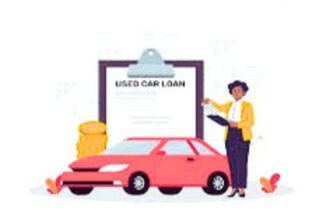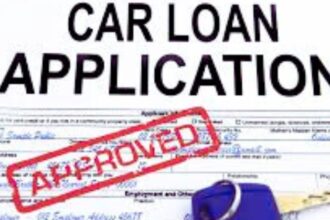Understanding the Challenge
Securing a car loan with bad credit can be daunting. Traditional lenders often hesitate to approve loans for individuals with low credit scores, making it challenging to finance a vehicle. However, understanding the factors at play and exploring alternative options can increase your chances of approval.
Exploring Financing Solutions
Despite the challenges, several avenues can help individuals with bad credit secure a car loan. This guide delves into strategies such as saving for a substantial down payment, considering co-signers, and exploring specialized lenders. By equipping yourself with knowledge, you can navigate the process more effectively.
Encouraging Informed Decisions
It’s essential to approach the car loan process with a clear understanding of your financial situation and available options. By staying informed and proactive, you can make decisions that align with your financial goals and improve your chances of securing a loan.

What Is a Bad Credit Car Loan?
A bad credit car loan is a financing option tailored for individuals with low credit scores, typically below 600. These loans often come with higher interest rates and may require larger down payments to offset the lender’s risk. Understanding the terms and conditions is crucial before committing to such loans.
Factors Affecting Loan Approval
Credit Score
Lenders use credit scores to assess the risk of lending. A lower score indicates higher risk, leading to higher interest rates or loan denials. Improving your credit score before applying can enhance your approval chances.
Income and Employment Stability
Consistent income and stable employment demonstrate your ability to repay the loan. Lenders prefer borrowers with a steady income stream to mitigate repayment risks.
Debt-to-Income Ratio
This ratio compares your monthly debt payments to your gross monthly income. A lower ratio suggests better financial health, making you a more attractive candidate for a loan.
Strategies to Improve Loan Approval
Save for a Larger Down Payment
A substantial down payment reduces the loan amount and shows lenders your commitment. Aim for at least 20% of the car’s value to improve your chances.
Consider a Co-Signer
A co-signer with good credit can reassure lenders and may result in better loan terms. Ensure the co-signer understands their responsibility in case of default.
Shop Around for Lenders
Different lenders have varying criteria and interest rates. Compare offers from banks, credit unions, and online lenders to find the best deal.
Alternative Financing Options
Buy Here, Pay Here Dealerships
These dealerships offer in-house financing, catering to individuals with bad credit. While convenient, they may have higher interest rates and limited vehicle selections.
Subprime Lenders
Specialized lenders focus on borrowers with poor credit histories. They may offer more flexible terms but often at higher interest rates.
Risks of Bad Credit Car Loans
Higher Interest Rates
Bad credit loans often come with elevated interest rates, increasing the total cost of the vehicle over time.

Limited Loan Amounts
Lenders may approve smaller loan amounts, limiting your choice of vehicles.
Potential for Debt Cycle
If not managed properly, taking on a loan with unfavorable terms can lead to a cycle of debt.
Tips for Managing Your Loan Responsibly
-
Make Timely Payments: Avoid late fees and negative impacts on your credit score.
-
Refinance When Possible: If your credit improves, consider refinancing to secure better terms.
-
Maintain a Budget: Track your expenses to ensure you can comfortably meet loan obligations.Conclusion
Obtaining a car loan with bad credit is challenging but achievable with the right approach. By understanding the factors involved, exploring various financing options, and managing your loan responsibly, you can secure a vehicle that meets your needs without compromising your financial stability.
External Resources:










